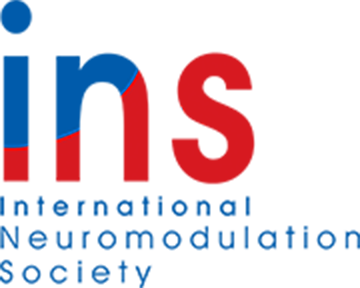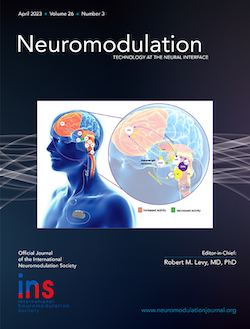International Neuromodulation Society Grants, Awards, Honors & Competitions
Chapter Formation GrantsIn support of membership growth and the development of new regional chapters, the INS is pleased to announce its Chapter Foundation Grant. Grants will be awarded pending a review of the organizers’ mission and with the understanding that the following terms must be fulfilled by the recipient(s):
If you are interested in forming a new chapter and applying for the grant, you are encouraged to notify the INS Executive Office and provide the following details:
The criteria for forming a National Chapter are to:
Abstract CompetitionStarting with an inaugural competition at its 12th World Congress in 2015 in Montreal, the INS has recognized the five top INS congress research abstracts for their quality, originality and ingenuity in basic or clinical science:
Historical New Investigator Competition Results, 2009 - 2010 Neuromodulation Global Activities and EventsThe International Neuromodulation Society wishes to inform the community about relevant endeavors, including:
WIKISTIMWIKISTIM is being developed by the nonprofit Neuromodulation Foundation, Inc. (an independent organization from the INS), as a resource for the global neuromodulation community. The online wiki allows contributors to list and extract primary research data to enable tabular downloads and provides the capability of a forum discussion for knowledge-sharing. Overall, it is intended to extend the utility of published clinical research.
The abstracted data are categorized in data sheets to enable meta-analysis by users. The site has a customized search engine and links to PUBMED abstracts as well as to spinal cord stimulation practice parameters that were developed in 2007 by more than 20 experts and are accessible on the website of the Neuromodulation Foundation, www.neuromodfound.org. WIKISTIM also provides a forum for ongoing discussions of any length. Pain Alliance Europe - Member of the European Parliament Interest Group on Brain, Mind and PainA Register of Support opened Jan. 13 - 14, 2015 at a meeting of the European Parliament in Strasbourg, and more than 40 Members of the European Parliament signed. According to the registered charity Pain Alliance Europe, the Interest Group on Brain, Mind and Pain "aims to encourage research into and access to innovative treatments, promote prevention and self-management approaches, decrease stigma and work together to improve quality of life for people living with these disabling conditions." Supporters called for policymakers to:
Pain Alliance Europe launched and coordinated the Interest Group in conjunction with the European Federation of Neurological Associations. European Brain Council's Age of the BrainAs part of its public education campaign, the International Neuromodulation Society (INS) joined more than 200 organizations to support the European Brain Council's (EBC) proposal to recognize 2014 as The European Year of the Brain (EYOB). European Year of the Brain aimed to "celebrate the wonder of the brain and create initiatives which will change behaviours and lead to measurable improvements in health," and has the potential to do the following:
|
| Last Updated on Thursday, August 12, 2021 07:48 PM |

